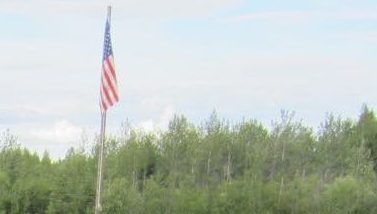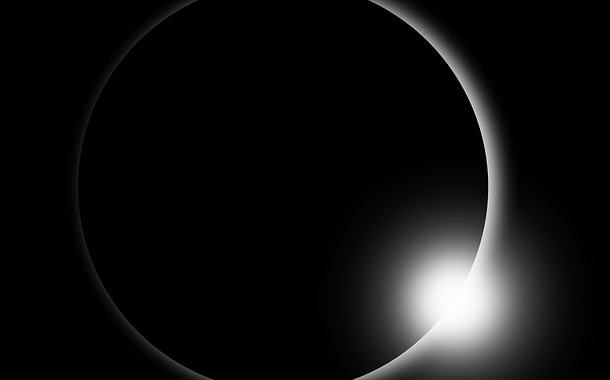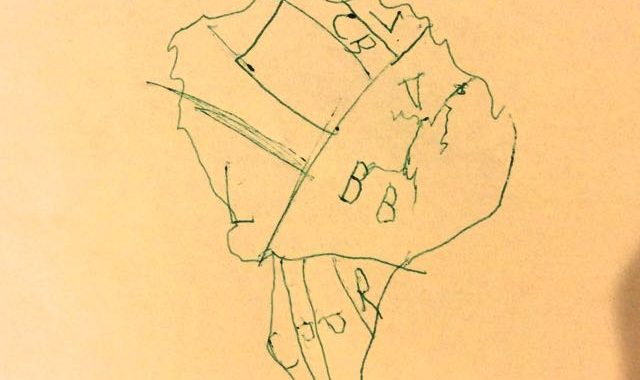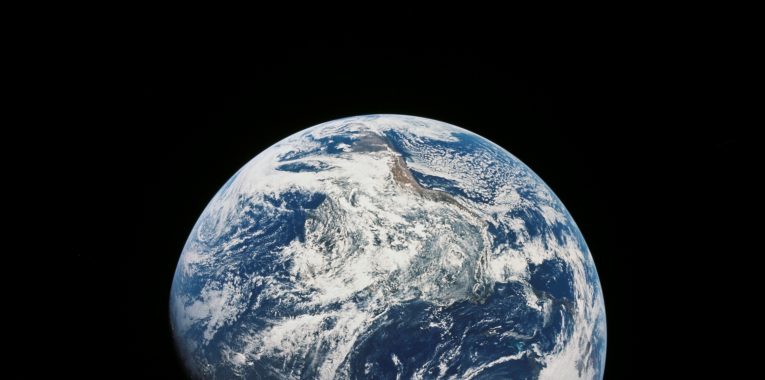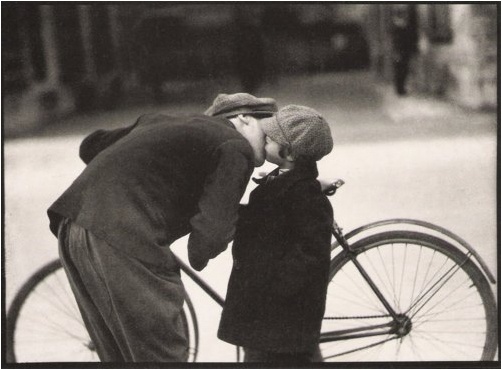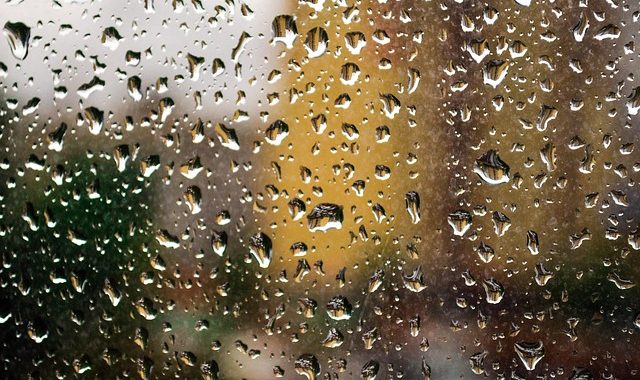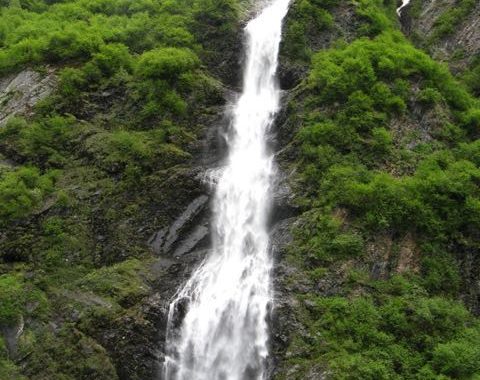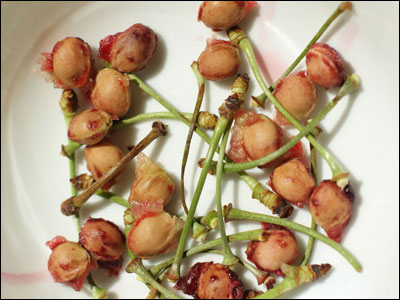Strings cross the lyre,
nothing wasted – mother’s song
in starlit glory.
Category: Poems
Our flag rustles
Our flag rustles,
old woman searching her purse for a tissue
to dab her sudden tears.
Not Him
When she is three, she makes her choice: a skeleton
for a father. No one can convince her otherwise.
In her wisdom she turns him
to absence, the man who’s naught.
Her mother – a radiologist –
knows the eclipse: dancing
bones and empty grin
between the mirror and herself.
And so, when the child paints,
her sky is wider, less like a pot lid
settled on the box of house, people
in the windows thin as straw.
When she sings, her words are little planets
passing into careless shadow
cast by an opiate moon.
Her cuffs drop down, covering her hands.
Prayer for Quiet Waters
—–for Kristi
Make her thoughts a pencil sketch
empty of all but line, untroubled
nation of clear bounds,
unquestioned loyalties and love, still,
calm as springs rising from the
hidden source. There is an
aquifer beneath our words. She knows: that
heart, that lamb, that longing to be held.
For Mothers Losing
You share tonight the planet’s oldest grief,
one set in motion hard upon the stars.
Eve lost a son before she watched one leave.
In photos of the Earth from space, bright sieve
where children strain from parents’ longing arms,
you share tonight the planet’s oldest grief.
In skins of animals now marked for death,
the shock of curse and labor, agate scars –
Eve lost a son before she watched one leave.
In your own womb, it’s hardest to believe
a man could dwell, could birth his private wars.
You share tonight the planet’s oldest grief.
God doesn’t show his face, just passing breeze
to touch you gently through the loss’s bars.
Eve lost a son before she watched one leave.
He honors you, though that must seem naïve.
Your task is holding what must fall apart.
You share tonight the planet’s oldest grief:
Eve lost a son before she watched one leave.
I Hand My Heavy Body Over for Massage
I’ve brought you sadness
near the bone, trained to work
for nothing but the slim
reward of shouldering a truth:
outside this body, hurricanes are
narrowing their eyes,
turning toward tin roofing, concrete, sticks –
open gashes weeping in the wind.
Facts do carry on.
This body holds such data tight, muscles
hard with every name and town.
Each Jérémie, Au Cayes is
knowledge
internally displaced – that’s the formal
name for daughters of rubble, mothers’
disbelief – and I,
easy in my standing home, bear
rocks inside my skin, stiff homage to the crumbling
gingerbread house. I’m here to
ask: can you restore my frame?
Ready as a child to receive the father’s
tender kiss outside the school, I wait,
even in the smallness of my will, my
narrow range of motion.
Nature Has No Goals for Itself
_____“Put even a fool in front of the window and you’ll get a Spinoza.”
_____– Nicole Krauss
Nothing so wrong
with sitting still
to watch, some days,
when rain keeps falling
farther from the sky,
weeds keep stretching
farther from the ground,
the neighborhood dog,
forgetting all loyalty,
crosses highways in traffic
like the adopted son he is,
while you reflect
your genius
in the glass.
Nothing so wrong
with staying where you are,
waiting on cause
and effect to roust you
from your chair,
mathematical as rain
or blades of grass,
inevitable as a dog
digging after some first home.
At least, you think,
there is no sliding from this spot
where you belong, not now,
when everything is –
lucid as a photograph.
And yet,
the dog begins
to look like you
through glare
and shadow
on the pane
you thought was clear.
The bell
on his collar
jingles close to your ear,
reminder
of something you meant,
or were meant,
to do.
Tell Me How You Spend Your Day
There’s reassurance in recounting the hours
strung one to another like a paper chain
and what holds them there, affixed,
is the loop of the next moment, then the next,
when I tell you what it held.
You’re a doorway between two houses –
one where I live, cook, sit, sleep,
and one farther down the hill
where I hang secrets like glass globes
and wait on them for light.
Long Drive
Sister, listen.
Zeus swallowed his first wife.
So why should it surprise me when,
after driving in silence for hours,
my husband knocks me back
in one quick gulp?
Here I sit, captive in the belly,
composing songs on the lining of his stomach.
I clang them on his xylophone of ribs.
(I am furious with his ribs.)
He inside his husk of solitude
(I am angry with this husk) is happy.
I have only my unruly brood of thoughts
for company, and they have found a stick
with which they poke his shriveled liver
like tending a sick flame.
From deep within, I hear a waterfall,
echo of myself, the way it empties
without fear of emptiness.
Perhaps he fears a flood.
I would hardly have capsized the car.
I would have let him keep his thunderbolt.
Instead, he disgorges me at the rest stop 300 miles north
where I totter in the sunlight, parched,
and wonder where we’ve been.
Angers
—–after a photograph by Sally Mann
Mine are named Emmet, Jessie, and Virginia,
bare-chested children
with a gaze like gall.
I step in close to photograph their bellies –
naked seed heads,
all the florets blown.
Emmet smashes a lens
into the petals of a rose
to ask if beauty can withstand attack,
his love locked
at an elbow cuffed with bracelets,
his limbs strung from twine.
Jessie grips a beetle in her fist,
daring weakling life to try.
Sick legs wriggle at her palm.
Virginia’s hands are empty
accusations of what she won’t receive.
River-cold, her anger
is to fear
as faith is to belief – radiant action,
call to revolutionary growth.
They are gruff as cherry pits,
shrapnel
looking for a purchase in the dirt.

